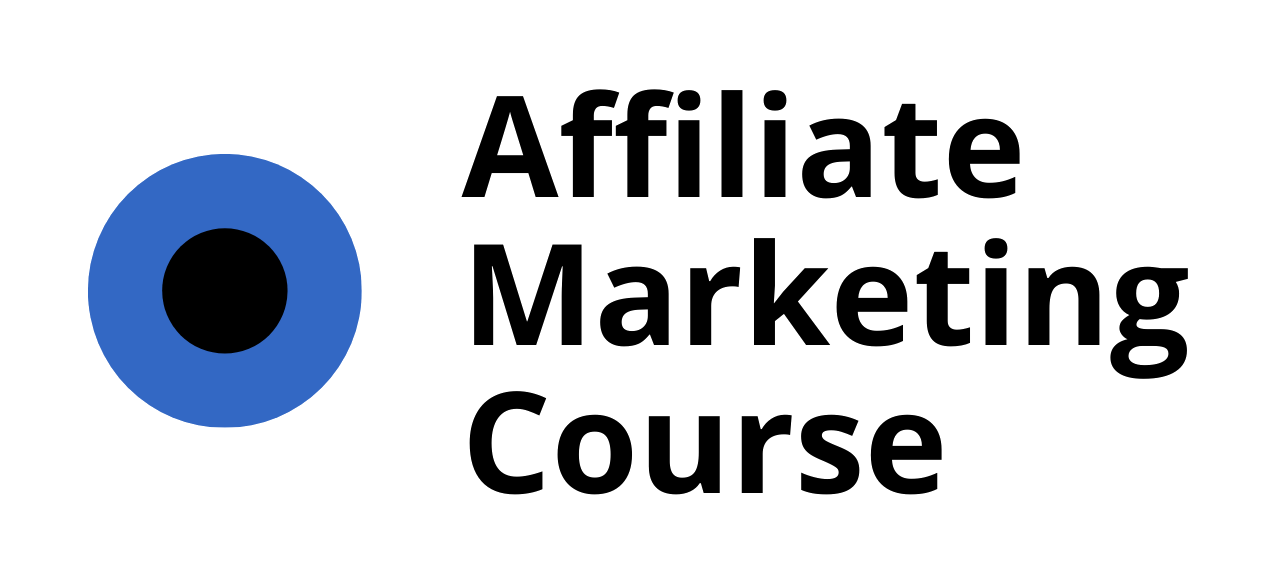In today’s competitive digital landscape, affiliate marketing has emerged as a powerful tool for businesses aiming to amplify their reach and drive sustainable growth. For digital marketers, integrating affiliate marketing into their strategies can unlock unprecedented opportunities to boost conversions, expand brand awareness, and foster customer loyalty. This comprehensive guide dives into the intricacies of affiliate marketing, offering a clear roadmap for digital marketers looking to harness its potential. From understanding the basics to exploring advanced tactics, this article equips you with the knowledge needed to successfully implement affiliate marketing programs that align with your business goals. Whether you’re just beginning your journey or seeking to refine your existing approach, this guide provides actionable insights and real-world examples to ensure your success in the ever-evolving world of digital marketing.
Key Takeaways
– Choose the Right Affiliate Programs: Select programs aligned with your audience and business goals, comparing options like Amazon Associates, ShareASale, and ClickBank.
– Understand Audience Targeting: Analyze your audience using tools like Google Analytics or Facebook Ads to tailor affiliate offerings that resonate with their interests and needs.
– Ensure Compliance with Laws and Regulations: Adhere to legal requirements, such as FTC guidelines, using proper disclaimers to maintain trust with your audience.
– Select the Right Platforms: Decide whether to focus on content creation, social media, or email marketing based on your audience’s preferences.
– Implement Tracking and Analytics: Use tools like Google Tag Manager or WordPress analytics to monitor campaign performance and refine strategies.
– Build a Strong Traffic Source: Drive traffic through SEO, content marketing, social media, or paid advertising, balancing organic and paid strategies.
– Understand Commission Structures: Review affiliate program terms, including commission rates and payment models, to maximize earning potential.
– Stay Updated on Trends: Keep abreast of industry developments, including new platforms and regulatory changes, to stay informed and competitive.
– Develop a Clear Strategy: Create a well-defined plan tailored to your goals, whether short-term campaigns or long-term content strategies.
- Evaluate Program Fit: Choose affiliate programs that complement your brand and audience, such as ShareASale or Amazon Associates.
- Ensure Compliance: Adhere to legal requirements like FTC guidelines to build trust and avoid penalties.
- Target Audiences Effectively: Segment your audience based on demographics and behavior to ensure affiliate offers resonate with them.
- Track Performance Metrics: Use tools like Google Analytics to monitor click-through rates, conversion rates, and earnings.
- Avoid Ad Conflicts: Carefully place affiliate links to maintain a cohesive user experience.
- Optimize for Lasting Success: Focus on long-term partnerships with affiliates for sustained engagement and growth.
- Program Selection: Evaluate commission structures, payment terms, and program reputation for long-term success.
- Audience Alignment: Tailor affiliate offerings to meet audience needs and preferences using analytics tools.
- Disclosure Requirements: Clearly disclose affiliate relationships to maintain transparency and trust.
- Product Quality and Relevance: Promote high-quality, relevant products to boost engagement and conversions.
- Performance Tracking: Implement robust tracking systems to refine strategies based on data insights.
- Compliance with Regulations: Stay informed about legal updates to avoid penalties and protect your brand’s reputation.
- Building a Strong Affiliate Network: Foster relationships with affiliates to drive traffic and revenue growth.
- Budget Allocation: Invest wisely in high-potential campaigns and tools to maximize impact.
- Strategic Integration: Align affiliate promotions with broader marketing efforts for a cohesive strategy.

What Should Digital Marketers Know Before Starting Affiliate Marketing?
Before diving into affiliate marketing, digital marketers must understand several key aspects to ensure their efforts yield success. Here’s a breakdown of the essential considerations:
- Choose the Right Affiliate Programs : Select affiliate programs that align with your audience and business goals. Compare options like Amazon Associates, ShareASale, and ClickBank to find the best fit for your niche.
- Understand Audience Targeting : Analyze your target audience using tools like Google Analytics or Facebook Ads to tailor your affiliate offerings. Promote products that resonate with their interests and needs.
- Ensure Compliance with Laws and Regulations : Familiarize yourself with legal requirements such as the FTC guidelines in the U.S., which mandate clear disclosure of affiliate relationships. Use proper disclaimers and avoid misleading claims.
- Select the Right Platforms : Decide whether to focus on content creation (blogs, YouTube), social media, or email marketing based on your audience’s preferences and your expertise.
- Implement Tracking and Analytics : Utilize tools like Google Tag Manager or WordPress analytics to monitor campaign performance. Track metrics such as click-through rates and conversion rates to refine your strategies.
- Build a Strong Traffic Source : Drive traffic through SEO, content marketing, social media engagement, or paid advertising. Balance between organic and paid strategies to maximize visibility and conversions.
- Understand Commission Structures : Review affiliate program terms, including commission rates and payment models. Consider factors like cookie duration and whether the program offers recurring commissions.
- Stay Updated on Trends : Keep abreast of industry developments, including new platforms, regulatory changes, and consumer behavior shifts. Attend webinars and read articles to stay informed.
- Develop a Clear Strategy : Create a well-defined plan tailored to your goals. Whether focusing on short-term campaigns or building a long-term content strategy, having a roadmap enhances your chances of success.
What Should Digital Marketers Know Before Starting Affiliate Marketing?
Before diving into affiliate marketing, digital marketers must understand several key aspects to ensure their efforts yield success. Here’s a breakdown of the essential considerations:
- Choose the Right Affiliate Programs : Select affiliate programs that align with your audience and business goals. Compare options like Amazon Associates, ShareASale, and ClickBank to find the best fit for your niche.
- Understand Audience Targeting : Analyze your target audience using tools like Google Analytics or Facebook Ads to tailor your affiliate offerings. Promote products that resonate with their interests and needs.
- Ensure Compliance with Laws and Regulations : Familiarize yourself with legal requirements such as the FTC guidelines in the U.S., which mandate clear disclosure of affiliate relationships. Use proper disclaimers and avoid misleading claims.
- Select the Right Platforms : Decide whether to focus on content creation (blogs, YouTube), social media, or email marketing based on your audience’s preferences and your expertise.
- Implement Tracking and Analytics : Utilize tools like Google Tag Manager or WordPress analytics to monitor campaign performance. Track metrics such as click-through rates and conversion rates to refine your strategies.
- Build a Strong Traffic Source : Drive traffic through SEO, content marketing, social media engagement, or paid advertising. Balance between organic and paid strategies to maximize visibility and conversions.
- Understand Commission Structures : Review affiliate program terms, including commission rates and payment models. Consider factors like cookie duration and whether the program offers recurring commissions.
- Stay Updated on Trends : Keep abreast of industry developments, including new platforms, regulatory changes, and consumer behavior shifts. Attend webinars and read articles to stay informed.
- Develop a Clear Strategy : Create a well-defined plan tailored to your goals. Whether focusing on short-term campaigns or building a long-term content strategy, having a roadmap enhances your chances of success.

What Are the Essential Considerations for Digital Marketers When Implementing Affiliate Marketing Programs?
- Selecting Reputable Partners: Choosing high-quality affiliate networks and merchants ensures reliability and credibility. Look for established platforms with strong track records and transparent policies.
- Regulatory Compliance: Adhere to laws and regulations such as GDPR, CCPA, and FTC guidelines to avoid legal issues and build trust with your audience.
- Performance Tracking and Analytics: Utilize advanced tracking tools to monitor campaign performance, identify bottlenecks, and optimize ROI. Tools like Google Analytics and specialized affiliate tracking software are highly recommended.
- Monetization Strategies: Clearly define how commissions will be calculated, payment terms, and conversion tracking methods to ensure fairness and transparency for all parties involved.
- Promotional Incentives: Offer exclusive discounts, bonuses, or special promotions to attract affiliates and drive higher engagement and conversions.
- Technology Integration: Invest in robust affiliate management platforms that streamline operations, automate payouts, and provide comprehensive reporting capabilities.
- Focusing on Customer Retention: Develop strategies to retain both customers and affiliates by offering loyalty programs, exceptional support, and continuous engagement opportunities.
- Competition Analysis: Stay informed about competitors’ strategies and offerings. Adapt your approach to differentiate your program and attract top talent.
- Legal and Ethical Considerations: Ensure all activities comply with industry standards and ethical guidelines to maintain your program’s integrity and reputation.
- Continuous Optimization: Regularly test and refine your affiliate program based on performance data and feedback to continuously improve results.
- Brand Consistency: Maintain a unified brand image across all marketing efforts to reinforce your company’s identity and trustworthiness among affiliates and customers.
- Customer Acquisition and Retention Balance: While driving sign-ups is crucial, focus equally on retaining existing affiliates to foster long-term partnerships and sustained growth.
- Content Strategy Integration: Align affiliate content with your overall marketing strategy, ensuring it complements your brand’s messaging and enhances user experience.
- Performance-Based Compensation Models: Consider flexible compensation structures, such as tiered commissions or performance-based rewards, to motivate affiliates effectively.
- Security Measures: Protect sensitive data and implement secure payment gateways to safeguard both your business and your affiliates’ information.
- Global Reach Considerations: If targeting international audiences, understand regional regulations and optimize campaigns for cultural and linguistic preferences.
- Long-Term Partnership Development: Build relationships with affiliates based on mutual respect and shared goals to ensure a stable and prosperous partnership over time.

What Should Digital Marketers Know Before Starting Affiliate Marketing?
Before diving into affiliate marketing, digital marketers must understand several key aspects to ensure their efforts yield success. Here’s a breakdown of the essential considerations:
- Choose the Right Affiliate Programs : Select affiliate programs that align with your audience and business goals. Compare options like Amazon Associates, ShareASale, and ClickBank to find the best fit for your niche.
- Understand Audience Targeting : Analyze your target audience using tools like Google Analytics or Facebook Ads to tailor your affiliate offerings. Promote products that resonate with their interests and needs.
- Ensure Compliance with Laws and Regulations : Familiarize yourself with legal requirements such as the FTC guidelines in the U.S., which mandate clear disclosure of affiliate relationships. Use proper disclaimers and avoid misleading claims.
- Select the Right Platforms : Decide whether to focus on content creation (blogs, YouTube), social media, or email marketing based on your audience’s preferences and your expertise.
- Implement Tracking and Analytics : Utilize tools like Google Tag Manager or WordPress analytics to monitor campaign performance. Track metrics such as click-through rates and conversion rates to refine your strategies.
- Build a Strong Traffic Source : Drive traffic through SEO, content marketing, social media engagement, or paid advertising. Balance between organic and paid strategies to maximize visibility and conversions.
- Understand Commission Structures : Review affiliate program terms, including commission rates and payment models. Consider factors like cookie duration and whether the program offers recurring commissions.
- Stay Updated on Trends : Keep abreast of industry developments, including new platforms, regulatory changes, and consumer behavior shifts. Attend webinars and read articles to stay informed.
- Develop a Clear Strategy : Create a well-defined plan tailored to your goals. Whether focusing on short-term campaigns or building a long-term content strategy, having a roadmap enhances your chances of success.
Key Aspects Digital Marketers Should Consider When Integrating Affiliate Marketing
Digital marketers integrating affiliate marketing into their strategies must carefully evaluate several critical factors to ensure successful implementation. Here’s a breakdown of the essential considerations:
- Evaluating Program Fit: Choose affiliate programs that align with your brand’s audience and product offerings. Look for programs that offer complementary products to maximize earning potential. Examples include platforms like ShareASale and Amazon Associates .
- Ensuring Compliance: Adhere to legal requirements, including disclose affiliate relationships as mandated by regulatory bodies like the Federal Trade Commission (FTC) in the U.S. Clearly indicate partnerships to maintain trust with your audience.
- Targeting Audiences Effectively: Segment your audience based on demographics, interests, and behavior to ensure affiliate offers resonate with them. Use analytics tools to track performance and refine your targeting strategies.
- Tracking Performance Metrics: Implement robust tracking systems to monitor click-through rates, conversion rates, and earnings. Use tools like Google Analytics to measure the effectiveness of your affiliate campaigns.
- Avoiding Ad Conflicts: Ensure affiliate links don’t clash with other ads or content. Use careful placement and design to maintain a cohesive user experience while maximizing visibility of affiliate offers.
- Optimizing for Lasting Success: Focus on building long-term partnerships with affiliates. Provide consistent support and communicate regularly to foster collaboration and drive sustained engagement.

Key Considerations for Digital Marketers Integrating Affiliate Marketing
When integrating affiliate marketing into their strategies, digital marketers must consider several critical factors to ensure success and compliance. Here’s a breakdown of the essential considerations:
1. Program Selection
Selecting the right affiliate marketing program is the foundation of a successful strategy. Look for programs that align with your target audience’s interests and offer high-quality products or services. Evaluate commission structures, payment terms, and program reputation to ensure long-term partnerships.
2. Audience Alignment
Understanding your audience is crucial. Ensure the products or services you promote resonate with their needs, preferences, and pain points. Use analytics tools to track user behavior and tailor your affiliate offerings accordingly.
3. Disclosure Requirements
Transparency is key in building trust with your audience. Clearly disclose your affiliate relationships according to regulations like the Federal Trade Commission (FTC) guidelines. This includes using proper disclaimers and disclosures to avoid violating any legal standards.
4. Product Quality and Relevance
Promote products that are not only high-quality but also highly relevant to your audience. This ensures higher engagement and conversion rates. Regularly update your inventory with trending or in-demand items to keep your content fresh and appealing.
5. Performance Tracking
Implement robust tracking mechanisms to monitor the performance of your affiliate campaigns. Use analytics tools to identify top-performing affiliates, optimize your strategies, and allocate resources effectively. Continuously refine your approach based on data-driven insights.
6. Compliance with Regulations
Adhere to all relevant laws and regulations, such as the FTC’s rules on endorsements and testimonials. Failure to comply can lead to penalties and damage your brand’s reputation. Stay informed about updates to these regulations to remain compliant.
7. Building a Strong Affiliate Network
Fostering strong relationships with your affiliate partners is essential. Provide them with resources, support, and promotional materials to help them succeed. A thriving affiliate network can drive significant traffic and revenue growth for your business.
8. Budget Allocation
Allocate your budget wisely to maximize the impact of your affiliate marketing efforts. Invest in high-potential campaigns, tools, and technologies that enhance your strategy. Monitor your spending and adjust as needed to achieve optimal results.
9. Strategic Integration
Integrate affiliate marketing seamlessly with your broader marketing efforts. Align affiliate promotions with seasonal events, product launches, or other marketing campaigns to create a cohesive and impactful strategy.
Conclusion
By considering these key considerations, digital marketers can successfully integrate affiliate marketing into their strategies. This approach not only enhances ROI but also builds lasting relationships with customers and partners. Always stay updated on industry trends and adapt your strategy to maintain a competitive edge.




0 Comments